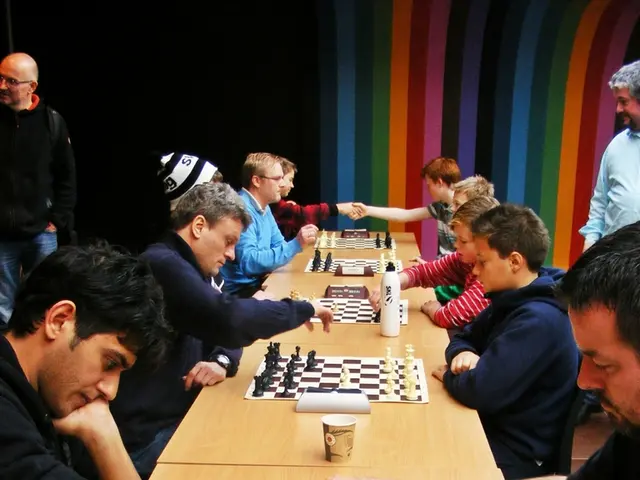Progress of Ohio's Sports Betting Legislation Advances Slowly
Ohio's sports betting landscape is currently in a state of flux, with the legislature engaged in discussions and debates over various aspects of the industry.
The amended bill for sports betting, HB 29, was passed by the Senate in June. If passed, the bill would initially allow for 40 brick-and-mortar licenses and 20 digital platforms, regulated by the Casino Control Commission. However, the House failed to concur, and the Senate refused to pass the bill as the House wanted it, leading to the formation of a conference committee in October.
The main points of contention in these ongoing discussions include:
- Player prop bets: Governor Mike DeWine has called for a statewide ban on player prop bets in response to investigations into suspicious betting activity involving professional athletes. This push faces opposition in the legislature, notably from Ohio House Finance Committee Chair Brian Stewart, who argues that prop bets are a significant and standard element of sports betting and should not be fully eliminated.
- Use of unclaimed sports betting funds: Senate Republicans proposed using unclaimed funds from sports betting accounts to support sports-related projects, including a new stadium for the Cleveland Browns.
- Tax rates: There has been debate about tax rates. Governor DeWine proposed increasing sports betting taxes from 20% up to 40%, but that proposal was later rejected. The tax rate was doubled from 10% to 20% in mid-2023 under HB 33 following the governor's initiative.
- Restriction on college sports betting: While Ohio permits many forms of sports wagering, betting on college player props is banned as of 2024, following NCAA concerns.
- Expansion of legalized gambling: DeWine opposes expanding legalized gambling in Ohio further to include online casinos, believing the state already has enough gambling options.
Sen. Kirk Schurring, who chairs a select committee on gaming, has been hearing from various stakeholders, including bowling alley owners and pro sports teams. Schurring recently stated that progress is being made towards a compromise to pass a conference report.
Ohio-based sports franchises, casinos, racinos, and people who want it in their establishments with lottery-based kiosks are interested in being part of the sports betting market. If a consensus is reached, there could be floor votes in both chambers by the end of the month.
Despite the ongoing debates, Ohio legal sports betting is among a handful of states with no clear impediment. The state started legal wagering on January 1, 2023, and now has numerous sportsbooks available, with tax rates on sports betting revenue currently set at 20% since July 1, 2023.
[1] Ohio Capital Journal. (2023). Ohio sports betting bill faces conference committee as tax rates, player props, and Browns stadium funding remain points of contention. Retrieved from https://www.ohiocapitaljournal.com/ohio-sports-betting-bill-faces-conference-committee-as-tax-rates-player-props-and-browns-stadium-funding-remain-points-of-contention/
[3] Cleveland Plain Dealer. (2023). Ohio sports betting bill passes Senate, heads to conference committee. Retrieved from https://www.cleveland.com/open/2023/06/ohio-sports-betting-bill-passes-senate-heads-to-conference-committee.html
[5] Columbus Dispatch. (2023). Ohio sports betting bill stalls in conference committee. Retrieved from https://www.dispatch.com/news/20231018/ohio-sports-betting-bill-stalls-in-conference-committee
Read also:
- Massive 8.8 earthquake hits off the coast of Russia's Kamchatka Peninsula, prompting Japan to issue a tsunami alert.
- Court petitions to reverse established decision on same-sex marriage legalization
- Independence supporters in New Caledonia refuse agreement offering authority without a vote on sovereignty
- Proposed Standardization of Food Labeling Laws Among Member States by the Commission







